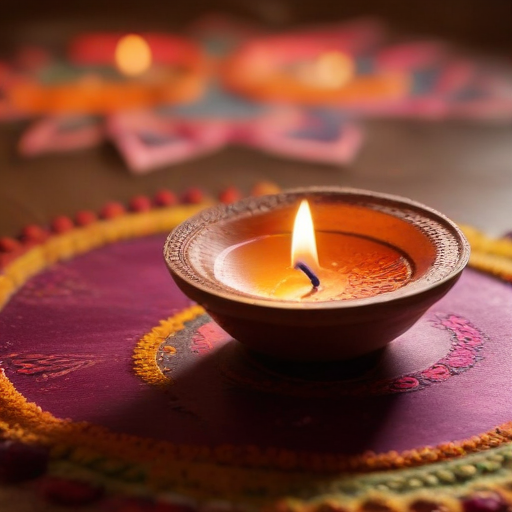Diwali, often synonymous with fireworks and sweet treats, encompasses rich cultural and spiritual meanings that resonate across various faiths. This year, celebrants will participate in the festival at different times: Hindus and Jains mark the occasion on October 31, Sikhs on November 1, and Buddhists on November 15, as each religion honors unique traditions.
For many, such as 23-year-old Vedika Apte from west London, Diwali is a cherished time for family bonding and gratitude. As a Hindu, she engages in the Marathi ways of celebrating, spending days preparing traditional sweets like ladoos alongside her mother. “It’s honestly one of my favorite times of the year,” she shares. The five-day festival, rich with customs, begins with Dhanteras, a day dedicated to purchasing gold for prosperity, followed by Narka Chaturdashi, a day of cleansing rituals. While fireworks and lighting of divas characterize the third day, it’s also a moment for prayers of wellness and abundance for families and the world. The final days emphasize family bonds, where sisters pray for their brothers’ well-being, enhancing the festival’s themes of love and unity.
For Jain community members like 19-year-old Dev from north London, Diwali serves as a reflective opportunity. It commemorates Lord Mahavira’s attainment of Moksha, promoting spiritual awareness over celebratory excess. Dev emphasizes the importance of self-cleansing and introspection during this time, abstaining from firecrackers to honor the sanctity of life.
Sikhs like Beant Dhillon view the festival as a time for reflection on the principles of good overcoming evil, celebrating Bandi Chhor Divas, which recalls the release of their sixth guru from imprisonment. The festive spirit also encompasses preparing traditional foods and spending quality time with loved ones.
Buddhists join the celebrations through the Loy Krathong festival, honoring the water goddess and reflecting on the appreciation of nature. Venerable Phramaha Bhatsakorn Piyobhaso from London highlights this period as a moment to celebrate survival and seek forgiveness through cultural practices, like making krathongs from banana leaves, which are sent down rivers with offerings of candles and incense.
In summary, Diwali transcends mere festivities; it is about spiritual reflection, family values, and cultural appreciation across different religions. It highlights the universal themes of hope, gratitude, and the triumph of light over darkness, inviting everyone to embrace these powerful messages in their lives. This year’s celebrations serve as an opportunity to deepen connections with one another and foster a spirit of unity in diversity.
